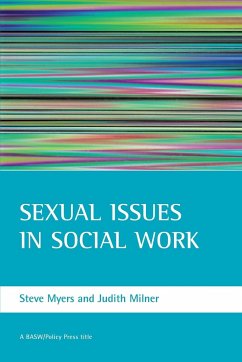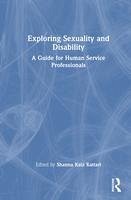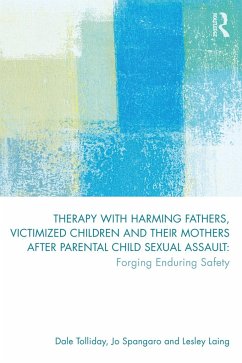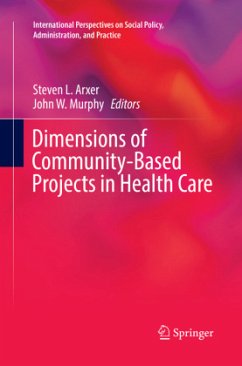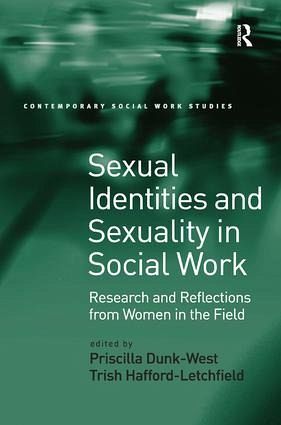
Sexual Identities and Sexuality in Social Work
Research and Reflections from Women in the Field
Herausgeber: Hafford-Letchfield, Trish
Versandkostenfrei!
Versandfertig in 1-2 Wochen
177,99 €
inkl. MwSt.
Weitere Ausgaben:

PAYBACK Punkte
89 °P sammeln!
Sexuality and sexual identity have been relatively marginalized areas in both social work education and practice. However, changes in policy and legislation in the UK and other countries over the past decade have brought discussions of sexuality into the mainstream public service agenda. In social work and social care, gay and lesbian citizenship rights have been explicitly recognised. In the fields of adoption and fostering new regulations and guidance have helped improve and develop practice around assessment and intervention. It remains the case, however, that sex is often perceived as a pr...
Sexuality and sexual identity have been relatively marginalized areas in both social work education and practice. However, changes in policy and legislation in the UK and other countries over the past decade have brought discussions of sexuality into the mainstream public service agenda. In social work and social care, gay and lesbian citizenship rights have been explicitly recognised. In the fields of adoption and fostering new regulations and guidance have helped improve and develop practice around assessment and intervention. It remains the case, however, that sex is often perceived as a problem area within social work and social care, discussed only in relation to sexually diverse communities or in the realm of dysfunction or pathology. This collection aims to generate a more proactive and challenging discussion of sexuality and sexual identity in social work. Its starting point is that sexuality is an essential aspect of individual identity, that users must be able to express their sexuality, and that it is essential for social workers to be able to respond and discuss sexual issues appropriately. The contributions are informed by feminist research, considering, in particular, the experiences of women working in and using social care services since the 1990s. In addition to a consideration of the wider policy, legislative and service providers' perspectives, the book includes reflective accounts as well as research-led contributions, offering a comprehensive and balanced account of this important field, which aims to inform both theory and practice.






